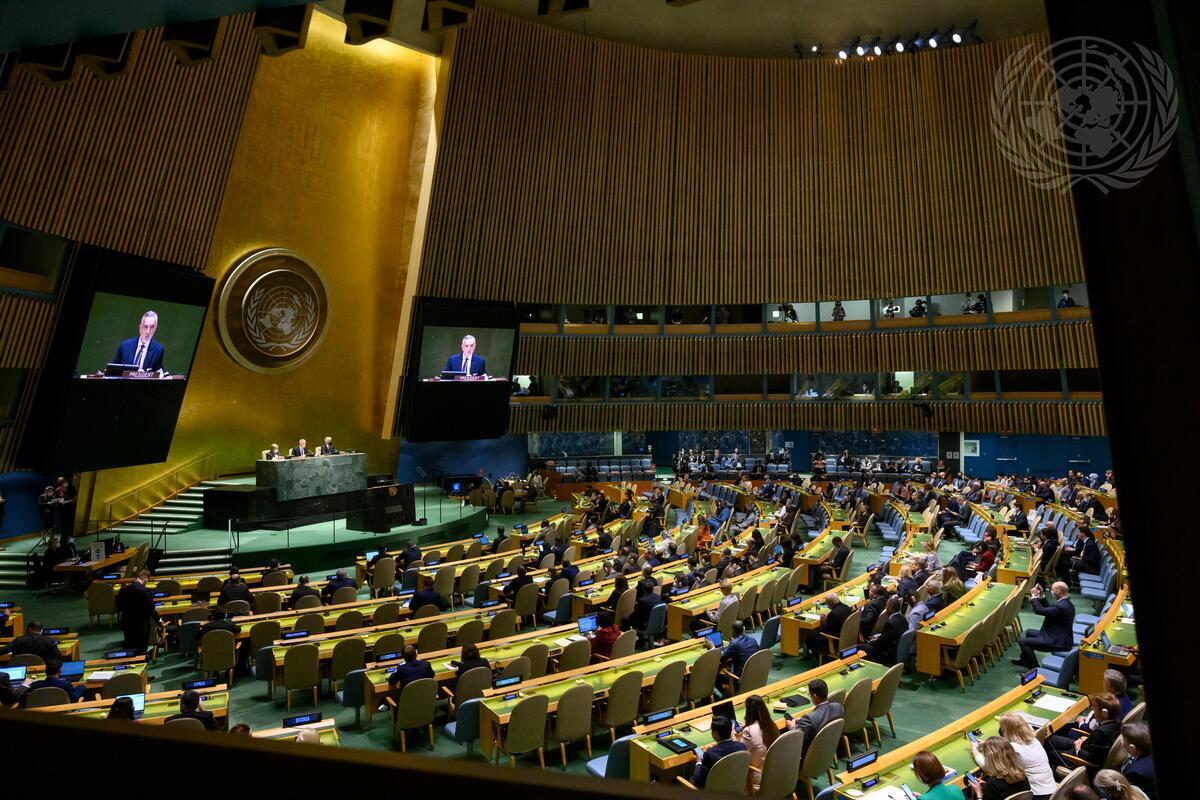Nuclear weapons, the role they play in international security, and the possibility of their use, have loomed more largely in public debate in recent months than perhaps at any time since the Cold War. The war in Ukraine has produced repeated implicit threats of nuclear use, bringing the subject back into public prominence.
Against this backdrop, States Parties to the Nuclear Non-Proliferation Treaty, the international treaty governing nuclear weapons, gathered at the UN in New York this August for their five-yearly Review Conference. postponed since 2020 by the pandemic.
A successful outcome at a Review that involves, among others, Russia, the US, Iran, China, Brazil, Egypt, will always be a notable achievement over significant political challenges, and doubly so in the current climate around nuclear weapons. It’s therefore a measure of the diplomacy of the Review President, Ambassador Gustavo Zlauvinen of Argentina, that this Review appeared to come within an ace of the gold standard outcome of a consensual Final Document, only for this to be scuppered at the very end by a Russian intervention.
This complex and fluid environment forms the context for Wilton Park’s annual dialogue in support of NPT diplomacy, a fixture in our calendar every December since 1996. The conference was established following the landmark NPT Review Conference of 1995, which agreed that the Treaty should be indefinitely extended to become a permanent feature of governance on nuclear weapons (the text of the Treaty stated that this decision should be taken 25 years after its entry into force). The timing of the WP event is well-placed to support NPT diplomacy, coming around four months before the Treaty’s PrepComs and Review Conferences. It’s a unique environment in which officials from key NPT governments around the world mingle with non-government experts, and confer on how to best advance the goals of the Treaty.
This year, we’ll be meeting fully in-person for the first time since the 2019 iteration. It’s strange, and a reminder of how quickly the pandemic descended, to think that when that conference wrapped up its final session on 19 December 2019, only a handful of virologists knew of the term Covid-19 but the UK was exactly three months from going into lockdown.
This year, normal service is resumed, and around 75 people from key NPT states, international organisations like the IAEA, and non-government experts will convene at Wiston House.
We’ll begin with an assessment of the fascinating developments at August’s Review Conference. In many respects, the really interesting aspect is not the denouement, but the fact that the prize was so clearly within reach. Again and again, after the Russian intervention, States Parties took to the floor to say that the draft Final Document, while far from ideal, was one that commanded their support.
We will be led off in our discussion by the UN High Representative for Disarmament Affairs, Izumi Nakamitsu, the US President’s Special Representative for Nuclear Nonproliferation, Adam Scheinman, and Director for Disarmament at the Mexican Foreign Ministry, Tonie Jaquez.
From there, we will be reviewing key challenges to, and opportunities for, the NPT. The ongoing issue of Iran’s nuclear programme will figure, as will the renewed salience of nuclear weapons during the Ukraine war, the role of the UN’s ‘nuclear watchdog’ the IAEA, how the diplomatic processes of the NPT can be progressed, how emerging technology will affect nuclear opportunities and nuclear dangers.
With the possibility of North Korea launching another nuclear test growing, we’ll hear from the leader of the international body monitoring nuclear testing, Robert Floyd of the CTBTO. A major development in recent times has been the entry into force of the Treaty on the Prohibition of Nuclear Weapons (TPNW), and we will be looking closely at how that Treaty will relate to the NPT. Depending on your point of view, the treaties may be at odds or complementary. Either way, finding a way to ensure cooperative rather than competitive co-existence will be essential, and we will explore how that can be achieved.
As always, we at Wilton Park will be aiming to provide an offline, off-record space in which the individuals tasked with advancing the governance of these most fearsome of weapons can work together in that cause. One of our opening speakers, and a longstanding ally of the conference, Ambassador Adam Scheinman, says: “Wilton Park puts on an outstanding facilitated dialogue on the NPT. Its quality, depth and diversity of participation are of genuine service to the preservation of this essential nuclear treaty. Keep it up!”. There really is no place like Wilton Park and no conference quite like this one.
